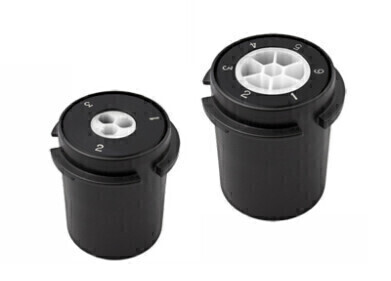PFAS in Water
Scientists develop new approach to detect PFAS ‘forever chemicals’ in water
Jan 22 2024
Scientists in Chemistry and Environmental Science at the University of Birmingham in collaboration with scientists from the Bundesanstalt für Materialforschung und -prüfung (BAM), Germany's Federal Institute for Materials Research and Testing, have developed a new approach for detecting pollution from ‘forever chemicals’ in water through luminescence.
PFAS or ‘forever chemicals’ are manufactured fluorine chemicals that are used widely in different industries - from food packaging to semiconductor production and car tires. They are non-degradable and accumulate in the environment. Concerns regarding the toxic pollution they cause, particularly in water, have been rising in recent years.
Stuart Harrad, Professor of Environmental Chemistry at the University of Birmingham, who – with colleague Professor Zoe Pikramenou, Professor of Inorganic Chemistry and Photophysics - co-led the design of a new sensor, said: “Being able to identify ‘forever chemicals’ in drinking water, or in the environment from industrial spills is crucial for our own health and the health of our planet. Current methods for measurement of these contaminants are difficult, time-consuming, and expensive. There is a clear and pressing need for a simple, rapid, cost-effective method for measuring PFAS in water samples onsite to aid containment and remediation, especially at (ultra)trace concentrations. But until now, it had proved incredibly difficult to do that.”
The researchers, who have published their findings in Analytical Chemistry, have created a prototype model which detects the ‘forever chemical’ perfluorooctanoic acid (PFOA). The approach uses luminescent metal complexes attached to a sensor surface. If the device is dipped in contaminated water, it detects PFOA by changes in the luminescence signal given off by the metals.
Professor Pikramenou commented: “The sensor works by using a small gold chip grafted with iridium metal complexes. UV light is then used to excite the iridium which gives off red light. When the gold chip is immersed in a sample polluted with the ‘forever chemical’, a change of the signal in the luminescence lifetime of the metal is observed to allow the presence of the ‘forever chemical’ at different concentrations to be detected. So far, the sensor has been able to detect 220 micrograms of PFAS per litre of water which works for industrial wastewater, but for drinking water we would need the approach to be much more sensitive and be able to detect nanogram levels of PFAS.”
The team has collaborated with surface and sensor scientists BAM in Berlin for the assay development and dedicated analytics at the nanoscale. Dan Hodoroaba, head of BAM’s Surface and Thin Film Analysis Division, emphasized the importance of chip characterization: “Advanced imaging surface analyses are essential for the development of dedicated chemical nanostructures on customised sensor chips to ensure optimal performance.”
Knut Rurack, who leads the Chemical and Optical Sensing Division at BAM, added: “Now that we have a prototype sensor chip, we intend to refine and integrate it to make it portable and more sensitive so it can be used on the site of spills and to determine the presence of these chemicals in drinking water.”
Professor Pikramenou concluded: “PFAS are used in industrial settings due to their useful properties for example in stain-proofing fabrics. But if not disposed of safely these chemicals pose a real danger to aquatic life, our health, and the broader environment. This prototype is a big step forward in bringing an effective, quick, and accurate way to detect this pollution helping to protect our natural world, and potentially keep our drinking water clean.”
Digital Edition
IET 34.2 March 2024
April 2024
Gas Detection - Biogas batch fermentation system for laboratory use with automatic gas analysis in real time Water/Wastewater - Upcycling sensors for sustainable nature management - Prist...
View all digital editions
Events
Apr 30 2024 Melbourne, Australia
Apr 30 2024 Birmingham, UK
May 03 2024 Seoul, South Korea
May 05 2024 Seville, Spain
May 06 2024 Minneapolis, MN, USA



















